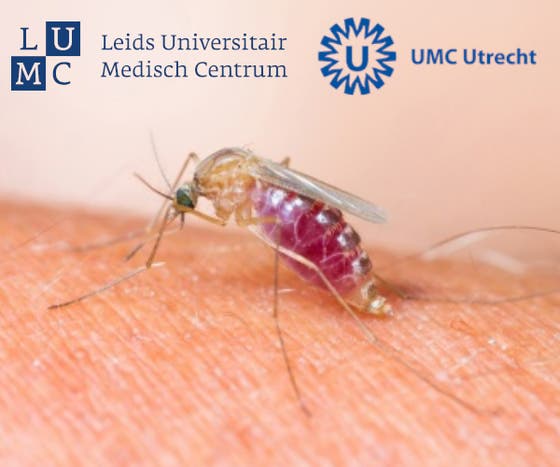Jul 28: Travelers wanted for research into mosquito and tick-borne infections

Summer vacation has started for many people and this time of the year often brings a lot of mosquitoes and ticks. In addition to nasty tickles, red spots and bumps, these insects can also transmit diseases to humans and animals. UMC Utrecht and LUMC today start a study (One Health Travel Study) into the prevention of mosquito and tick-borne infections and are looking for 1,000 travelers who want to contribute.
Mosquitoes and ticks occur naturally in the Netherlands. The One Health Travel Study of LUMC and UMC Utrecht investigates, among other things, West Nile, Usutu, Sindbis, Chikungunya, Dengue, Zika virus infections and tick cephalitis. These infections are all transmitted to humans through the bite of an infected mosquito or tick and are also known as 'arbovirus infections'.
Vulnerable to outbreaks
The Netherlands is vulnerable to outbreaks of such viral diseases because of the water-dominated landscape, the population density, our large livestock and the expected appearance of new mosquito species. These factors may cause arbovirus infections to spread here in the future. “It is important that we learn more about the risks to the Netherlands when it comes to these infections due to mosquito and tick bites,” says dr. Patricia Bruijning, project leader and pediatric epidemiologist at UMC Utrecht. It is not yet known how big the risk is that travelers within Europe and the Caribbean Netherlands will contract an arbovirus infection, because the symptoms are often mild and resemble flu-like symptoms, for which people do not seek medical attention. However, undetected infections among returning travelers may (in the future) pose a threat to public health. Fortunately, it is not the case yet, but it is important that this threat is properly investigated so that measures can be taken if necessary.

Dr. Patricia Bruijning
One Health Travel Study
The One Health Travel study requires 1000 travelers who go on holiday in Europe (including the Netherlands) or the Caribbean Netherlands. During the trip, participants will be asked to keep track of data via an app about their health, activities during the trip and mosquito nuisance that they experience. When they return home, they take some blood themselves by means of a finger prick, which will be tested for the prevention of mosquito-borne infections. “With this app, we keep our finger on the pulse, as it were, about new infections and mosquito nuisance while traveling”, says Prof. Dr. Leo Visser, professor of infectious diseases at LUMC.
Interested travelers can find more information and register online via the study website: www.OHtravel.nl
This research is part of a large Dutch project called OneHealthPACT into the emergence of mosquito-borne infections in the Netherlands and influencing factors.
